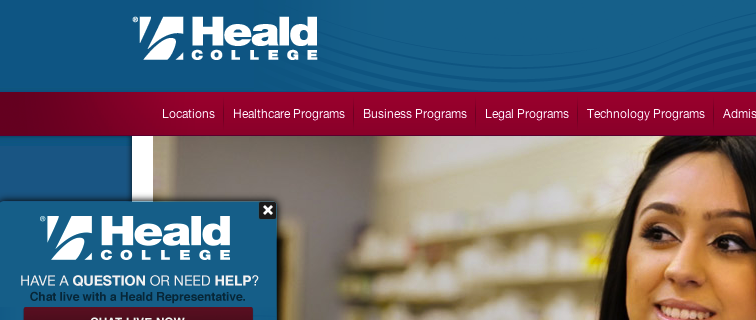Feds Win Default Judgment Against Corinthian Colleges Over Predatory Lending Scheme
 In September 2014, just seven months before Everest University, WyoTech and Heald College closed their doors, federal regulators sued the for-profit colleges’ parent company Corinthian Colleges Inc claiming it duped thousands of students into taking out costly, predatory, and often financially devastating, private student loans to finance their post-secondary education. This week, the Consumer Financial Protection Bureau won a default judgment against the for-profit educator for engaging in a predatory lending scheme.
In September 2014, just seven months before Everest University, WyoTech and Heald College closed their doors, federal regulators sued the for-profit colleges’ parent company Corinthian Colleges Inc claiming it duped thousands of students into taking out costly, predatory, and often financially devastating, private student loans to finance their post-secondary education. This week, the Consumer Financial Protection Bureau won a default judgment against the for-profit educator for engaging in a predatory lending scheme.
The CFPB announced today that a federal court entered a final default judgment [PDF] finding CCI liable for more than $530 million in loans taken out by students since July 21, 2011.
However, because CCI filed for bankruptcy in early 2015 and liquidated its assets, the company cannot pay the judgment.
The Bureau says it will continue to pursue relief for consumers harmed by CCI’s unlawful conduct.
“The CFPB remains concerned about efforts to collect on loans made in association with Corinthian’s illegal conduct,” the Bureau said in a statement.
Tuesday’s decision put an end to the lawsuit [PDF] filed after an investigation by the CFPB that found that since July 2011, Corinthian has lured tens of thousands of students at Heald College, Everest University, and WyoTech to take out private student loans to cover expensive tuition costs by advertising bogus job prospects and career services.
According to the complaint, CCI advertised their education as a gateway to good jobs and better careers for students coming from economically disadvantaged backgrounds, of which many are the first members of their families to attend college.
To entice these students, CCI schools used sham job placement rates to lead students to think that when they graduated they were likely to land good jobs and sufficient salaries to repay their private student loans.
However, the CFPB found that CCI inflated these rates by creating fictitious employers and reporting students as being placed at those fake employers. Additionally, the company allegedly counted a “career” as a job that merely lasted one day, with the promise of a second day.
Other inflation tactics included the company paying employers to temporarily hire graduates long enough for them to be counted among those with a career.
And finally, the company’s career services were often difficult to get in touch with and available job postings were culled from websites like Craigslist.
Once students were tempted by the promise of long-lasting careers with CCI degrees, they were pressured to take out costly and predatory private loans, known as Genesis Loans, issued by the company.
The CFPB alleged that CCI then used illegal debt collection tactics to harass students into paying back those loans while still in school.
Under the Genesis loan program, students were required to make monthly loan payments while attending school.
By making students repay their loans while attending classes, CCI was allegedly able to take advantage of their position of power to engage in aggressive debt collection tactics – and that staff received bonuses for successfully collecting payments from students.
The CFPB’s investigation found that efforts to collect payments included shaming students by pulling them out of class. In one case, a financial aid staff member was known as the “Grim Reaper” because the worker routinely pulled students out of class to collect debts.
While the court’s judgment won’t result in refunds for consumers, the CFPB and Dept. of Education previously secured $480 million in debt relief for former students.
Want more consumer news? Visit our parent organization, Consumer Reports, for the latest on scams, recalls, and other consumer issues.

